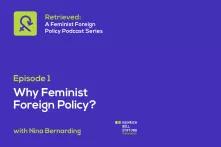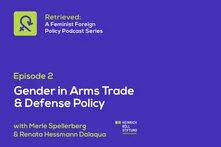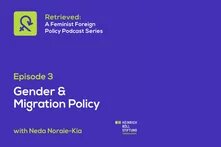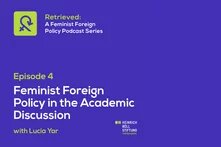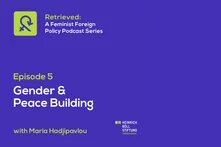
Retrieved: A Feminist Foreign Policy Podcast Series
Feminism and patriarchy are terms we tend to encounter in discussions about the way societies are organised internally. And yet, foreign policy, just like most fields of policy-making, is heavily affected by patriarchal structures and prejudice. However, its future can be better. With the help of policy advisors, journalists, researchers, and politicians, we examine how feminist foreign policy can reflect the interests of all genders and often overlooked stakeholders: from peace-building and climate, to migration and defence policy, we look to examples from across the EU that show how this bold new model benefits society at large - and the challenges on the horizon. Can feminism retrieve a new foreign policy mantra out of the dusty ideas of the past?
